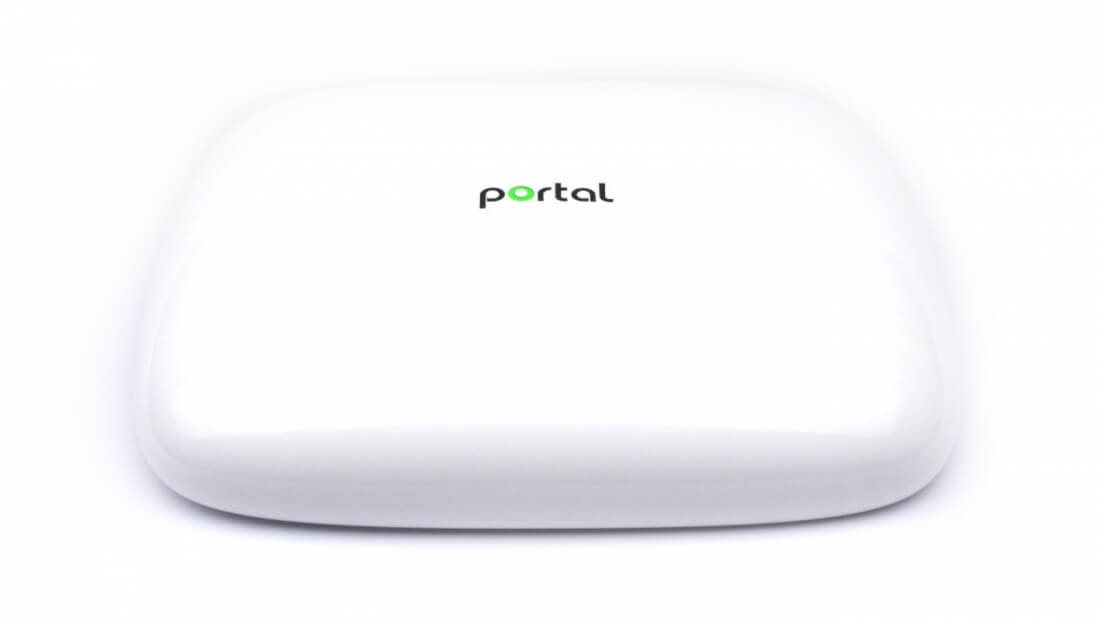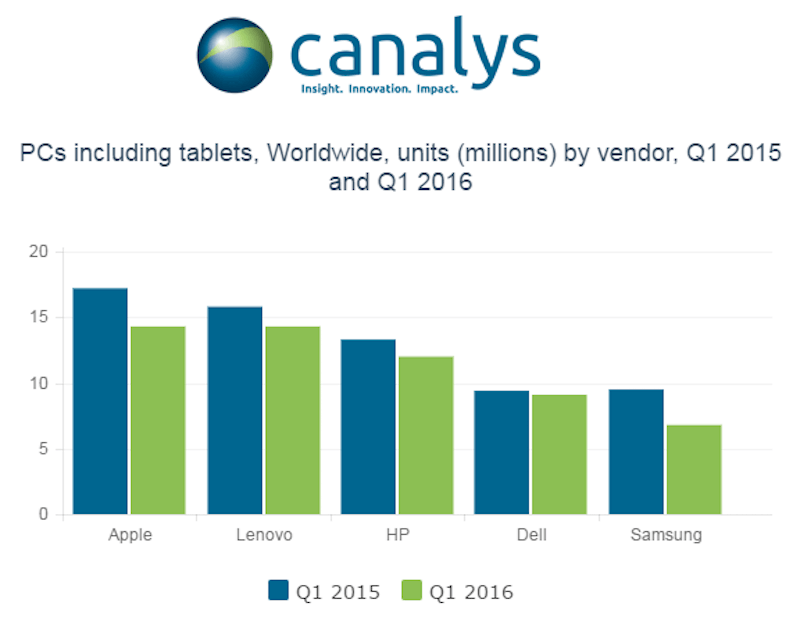
Following last month’s reports from analyst firms IDC and Gartner that showed computer sales have declined dramatically, there’s now more bad news for the PC industry. Market research company Canalys revealed yesterday that shipments of PC devices are at their lowest point since the second quarter of 2011.
The new report shows that overall PC sales from January to March 2016 - including desktops, notebooks, two-in-ones, and tables – declined to 101 million units, a 13 percent drop compared to the same period last year.
Despite its shipments falling by 17 percent, Apple continues to lead the market. But the Cupertino company is only marginally ahead of Lenovo, which shipped just 25,000 units less than Apple as the Chinese firm’s decline moved into double digits following weak sales in its home country.
HP, Dell, and Samsung, which made up the rest of the top five vendors, also saw their shipments fall.
Out of all the devices, it was tablets that took the biggest hit, declining for the sixth consecutive quarter. There were just under 39 million of the devices shipped in Q1, a decline of around 15 percent compared to Q1 2015. There was, however, some good news for hybrids, as the two-in-one market grew by almost 13 percent.

Canalys senior analyst Tim Coulling painted a grim picture of the PC market’s future. “The global PC market had a bad start to 2016, and it is difficult to see any bright spots for vendors in the coming quarters,” he said.
“The tablet boom has faded in the distance, and the market is fully mature. Global shipment declines are expected to continue unless vendors bring transformational innovation to the market. The number of people looking to buy their first PC is at an all-time low, and 2016 is likely to bring yet more turmoil to global PC vendors.”
While recent reports do suggest that Windows 10 and Skylake haven’t resulted in a load of people rushing out to buy new PCs, there are reasons to be optimistic about the future. In contrast to Coulling’s words, IDC’s Linn Haung said that “the PC market should experience a modest rebound in the coming months.” Plus, with the inevitable slew of pre-built VR-ready gaming PCs arriving later this year containing new Pascal and Polaris GPUs from Nvidia and AMD, respectively, it’s a bit premature to declare that the PC is dead.
Image credit: Who is Danny on Shutterstock
https://www.techspot.com/news/64762-report-shows-sales-pc-devices-lowest-point-since.html